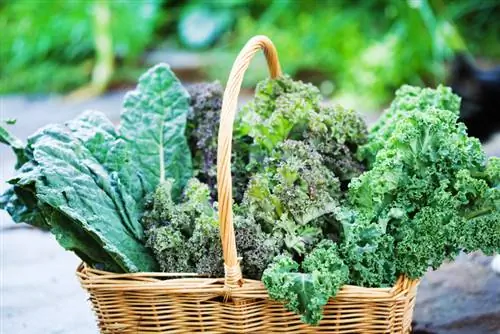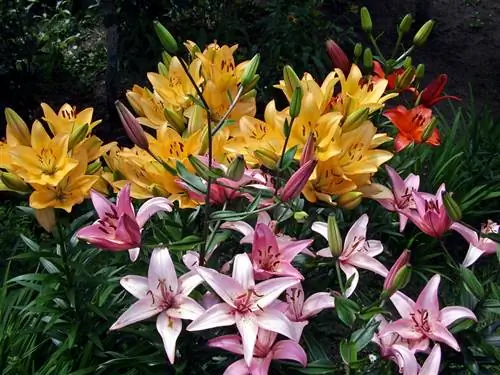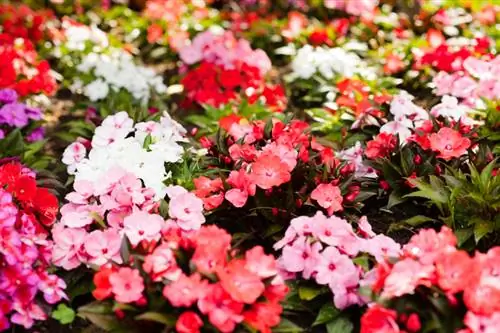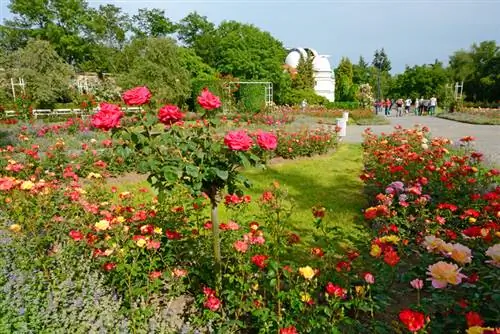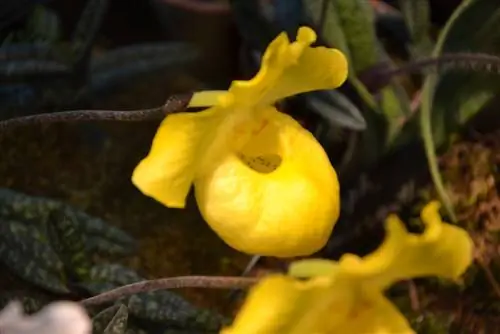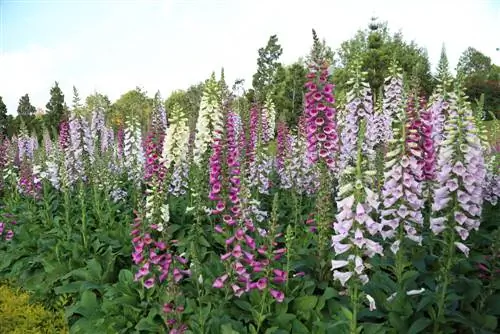- Author admin leonars@hobbygardeners.com.
- Public 2023-12-16 16:46.
- Last modified 2025-01-23 11:20.
Originally there were probably dozens of different varieties of kale, but the variety is decreasing and today there are hardly more than 10 varieties known - and even those only in traditional growing areas in northern Germany. Find out below what they are and what makes kale special.
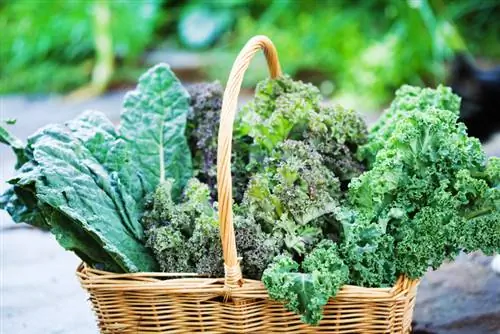
Kale is also known as brown cabbage or curly cabbage and is now mainly grown in Central and Western Europe, Africa and North America. It probably originally comes from the Atlantic and Mediterranean coasts and, like all types of cabbage, is a descendant of wild cabbage.
The kale in the profile
- Botanical name: Brassica oleracea var. sabellica L.
- Common names: brown cabbage, curly cabbage, feather cabbage (Switzerland), tall cabbage, winter cabbage, stalk cabbage, Lippe palm, Oldenburg, Frisian palm
- Family: Cruciferous plants
- Sowing: beginning of May
- Planting month: end of May
- Flowers: small, yellow flowers, blooms in the second year
- Harvest: depending on the type of kale from October to February
- Processing: blanched, cooked, fried, raw, in smoothies, as animal feed
The most important varieties at a glance
You can find different types of kale in stores, which differ in their foliage shape and color as well as their frost hardiness and height of growth. Most types of kale are harvested after the first frost because then there are fewer bitter substances and more sugar in the leaves. An exception is the Italian variety Nero di Toscana, which can also be harvested before frost. It is also ideal for growing in containers.
| Name | Leaves | Growth height | Frosthardiness | Harvest | Other |
|---|---|---|---|---|---|
| Frostara | lush green, wide | up to 70cm | frost hardy | from October | |
| Half-high green curler | dark green, medium strong | 80 to 90cm | medium | October to February | |
| Cadet | dark green, decorative leaves | 60 to 80cm | very frost hardy (down to -22°C) | October to February, after frost | |
| larkstongue | narrow, finely curled, slightly drooping leaves | half-high | good | October to January | |
| Nero di Toscana | Blue-green, dark leaves | half-high | low but heat resistant | until December, doesn't need frost | palm-like growth, well suited for container cultivation |
| Red Kale Redbor | dark purple leaves, finely curled | approx. 80cm high | good frost hardiness | from September to | loses red color when cooking |
| Westland Winter | finely curled | half-high | frost hardy | December to February, after frost | |
| Winnetou | coarsely curled, dark green | up to 80cm | frost hardy | October to February | Re-cultivation of peas, salads or kohlrabi |
| Winterbor | dark green leaves, heavily curled | half-high | up to -15°C | November to April, after frost |

